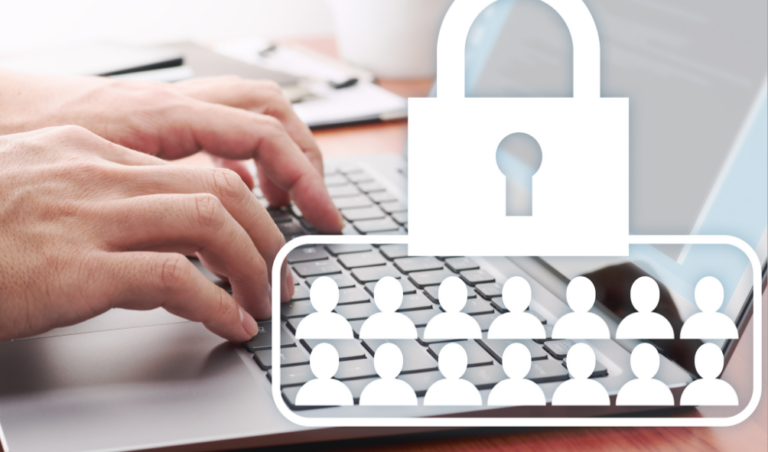
In an era characterized by rapid digital advancement, the concept of security has gone beyond conventional notions of locks and alarms. In this new landscape, data has become a precious commodity, underscoring the imperative for utility companies to not only safeguard their physical assets but also the personal information they gather and process. This discourse delves into the multi-dimensional nature of security within utilities, encompassing technological safeguards, data privacy, regulatory compliance, and the ever-evolving terrain of rules and regulations.
Navigating Security Challenges in Utility Operations
Utility companies confront a spectrum of security challenges, each demanding a tailored strategy to mitigate risks:
- Dynamic Definition of Personal Data: The delineation of personal data has morphed in the modern milieu. Formerly confined to credit card details, personal data now encompasses seemingly innocuous identifiers like names, email addresses, and phone numbers. As utilities collect such data for fundamental account management, the significance of data privacy assumes paramount importance. The stewardship of sensitive data is an entrusted duty, and consumer expectations now hinge on its secure handling.
- Risk in Data Management: The inadvertent exposure of data risk is not uncommon. Instances of businesses collecting sensitive financial information over the phone without adequate security protocols have been observed. This vulnerability persisted until fortified systems were introduced, enabling secure online and text-based payments. This underscores the need for robust security mechanisms, even during phone-based interactions, to safeguard sensitive customer data.
- Bridging the Regulatory Gap: An overarching challenge in the utility sector is the unawareness and unpreparedness regarding evolving regulations such as GDPR, particularly among smaller utilities. While larger counterparts often boast dedicated security and compliance units, smaller entities may grapple to keep abreast. This knowledge chasm can potentially expose utilities to avoidable risks. Proactive engagement with regulatory changes and the assimilation of best practices are indispensable.
- Mitigating Breaches and Outages: The discourse also accentuates the repercussions of breaches and outages, emphasizing the centrality of utilities in societal functionality. Breaches or outages bear the potential to disrupt vital services and could even trigger legal ramifications. The imperative of expedited breach notification processes is deliberated upon, ensuring timely communication with customers and stakeholders in the event of a security breach.
Enhancing Security Landscape
Safeguarding utilities mandates the fusion of collaboration and education. Learning from subject-matter experts, consulting external reservoirs of knowledge, and an unwavering commitment to best practices collectively empower utilities to fortify their security mechanisms. Validos.com stands as a resource hub, providing both insights and networking opportunities within the industry, facilitating the evolution of security protocols.
Concrete Steps Toward Augmented Security
Empowering utility security entails proactive steps tailored to the sector’s intricacies:
- Institute Robust Data Handling Protocols: Develop and enforce comprehensive data handling protocols prioritizing the security of customer data during collection and storage. Encryption of sensitive data, such as credit card information, and rigorous staff training in secure practices are non-negotiables.
- Forge Data Processing Agreements: For instances of technology outsourcing, data processing agreements (DPAs) are indispensable. DPAs delineate the roles and responsibilities of data controllers (utilities) and data processors (cloud providers). Strategic delegation of critical technology functions to specialized cloud providers, along with well-defined DPAs, ensures the clear demarcation of data security and privacy responsibilities.
- Stay Informed on Regulations and Best Practices: An unceasing vigil on evolving regulations, including GDPR, is imperative. Designating a specialized team or individuals within the organization to track security benchmarks, compliance prerequisites, and sector-specific best practices is key.
Harnessing Knowledge from Credible Sources
Several authoritative resources stand poised to empower utilities in their journey toward fortified security. Below is a list of great resources for the latest best practices and policies for security:
- NIST (National Institute of Standards and Technology): NIST dispenses comprehensive cybersecurity frameworks, with the NIST Cybersecurity Framework leading the way. These resources empower utilities to methodically manage and abate cybersecurity risks.
- CIS (Center for Internet Security): Offering the CIS Controls and Benchmarks, CIS delivers a repository of cybersecurity tools. The CIS Controls proffer a hierarchical set of actions to shield systems and data, while the Benchmarks furnish configuration guidelines.
- ISACA (Information Systems Audit and Control Association): ISACA furnishes the COBIT framework, aligning IT governance and control with business objectives. Research papers, webinars, and certifications on cybersecurity constitute additional offerings.
- SANS Institute: SANS imparts an extensive repertoire of cybersecurity resources, encompassing training, whitepapers, and tools addressing both technical and managerial facets.
- DHS (Department of Homeland Security): Through the Cybersecurity and Infrastructure Security Agency (CISA), DHS endows utilities with insights into critical infrastructure protection, incident response, and risk management.
- Utility Industry Associations: Associations like APPA, AWWA, and EEI cater to sector-specific security quandaries, presenting resources, conferences, and webinars.
- Cybersecurity Conferences and Webinars: Attending events like RSA Conference, Black Hat, and DEFCON facilitates exposure to emerging threats and best practices, coupled with valuable networking prospects.
- Vendor Documentation and Expert Consultation: Collaborating with technology vendors or cybersecurity experts, such as Dispel, proffers utilities specialized guidance and assessments to pinpoint vulnerabilities and institute robust security paradigms.
- Government Agencies and Regulators: National regulatory bodies offer guidelines and standards tailored to utility security requisites.
A Vision for the Future: Fortifying Security and Privacy
Utility companies face various security challenges, including redefining personal data, managing data-related risks, keeping up with evolving regulations, and mitigating the impacts of breaches and outages. Collaboration and education are highlighted as essential tools for enhancing security in utilities. Validos.com is a tool for utilities to connect and collaborate on a daily basis online. As technology continues its rapid evolution, the edifice of security and privacy will also evolve in tandem. It’s necessary to leverage the entire utility industry community to help protect utility assets. Through collaborative learning, knowledge sharing, and judicious decision-making, utilities can confidently navigate the intricate landscape of security and privacy.
In closure, the assurance of security within utilities mandates a holistic approach. This approach weaves a protective cocoon around data, operations, and infrastructure, propelling utilities toward a resilient and secure future.